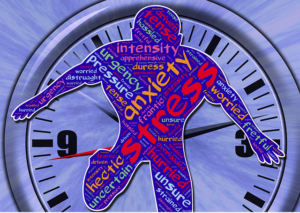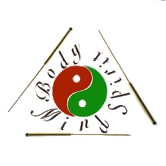 At AcuBalance Center of Houston, the treatment of anxiety is acupuncture/auriculotherapy supplemented with herbal medicine, nutrition advise, relaxation, and life changes. The treatment modality comes from information and experience derived from both Western and Chinese Medicines.
At AcuBalance Center of Houston, the treatment of anxiety is acupuncture/auriculotherapy supplemented with herbal medicine, nutrition advise, relaxation, and life changes. The treatment modality comes from information and experience derived from both Western and Chinese Medicines.
Western Medicine:
The word anxiety comes from the latin word anxious, meaning a condition of agitation and distress. Anxiety Symptoms such as insomnia, heart palpitations, disorientation, shortness of breath, trembling, sweating, choking, nausea or abdominal distress, numbness, dizziness, feeling of detachment, hot flashes or chills, fear of dying, fear of going out of control, etc, can sometimes be very confusing and scary to the person having these symptoms. Some people may confuse them with other physical conditions, such as heart disease, digestive disorders, or mental illness.
When several of the above list of symptoms happen at the same time, you may be diagnosed with what is considered a full-blown panic attack. Often times, you may also have developed symptoms of agoraphobia (fear of open spaces) in order to avoid the panic attacks, and you avoid going to certain places, or being in some social situations by yourself.
Depending on the symptoms, you may be suffering from different types of anxiety and your doctor may prescribe medications. The need for medication depends on the severity of the panic attacks, and the number of symptoms you are having. While medication may be needed in some severe cases, many cases of anxiety can be treated by other methods including cognitive therapy, learning muscle relaxation, meditation, breathing exercises, guided imagery, gradual exposure to the feared situation, constructive ways of thinking to substitute the fearful thinking, assertiveness training, nutrition and supplementation, avoiding certain substances such as caffeine, nicotine, stimulant drugs (amphetamines, cocaine, etc.), salt, food preservatives, hormones in meat, sugar, etc.
To diagnose a person with anxiety, we must make a distinction between fear and anxiety.
Fear is something real and concrete that is in the external reality such as an object or situation. For example, you fear an exam, you fear your spouse’s reaction to something you are going to do or say, you fear an illness, an earthquake, etc. Something is actually happening or can happen. There is a factor of rationality.
Anxiety on the other hand, is more abstract and irrational. You have difficulty identifying the cause of it. The focus of anxiety is more internal than external. It is a vague, distant or unrecognized danger. You may feel anxiety about “losing control of yourself”, or have the feeling that “something bad is about to happen”. It is a physiological, behavioral, and psychological reaction all at once. On a physiological level, you may feel rapid heartbeats, muscle tension, dry mouth, clammy hands, etc. On a behavioral level, you may want to avoid certain everyday situations that you have identified as the cause of your anxiety. At the psychological level you may feel inadequate, have low self esteem, or feel shy to express your feelings because you fear disapproval from others.
In contemporary society it is normal to feel a certain level of anxiety which is appropriate for many situations in our demanding and competitive world. Also, there are some medical conditions which can trigger anxiety attacks including hypoglycemia, hyperthyroidism, mitral valve prolapse, reaction to excess caffeine or withdrawal from substances such as alcohol, tranquilizers or sedatives, and other conditions.
Traditional Chinese Medicine:
According to Chinese medicine, Anxiety is a chronic state of fear and uneasiness which may derive from many emotions including fear, worry, excess joy, shock, guilt, shame or pensiveness . These emotions, eventually lead to Qi stagnation and heat which with time lead to blood and/or Yin deficiency which agitate the mind causing anxiety. Qi stagnation and Qi deficiency deriving from stress may lead to the formation of phlegm which may obstruct the mind and lead to more severe anxiety or panic attacks. The symptoms of anxiety are very similar to the Western view.
Giovanni Maciocia, one of the most prominent writers and professors of Chinese Medicine in the Western world, noticed that there is also a constitutional tendency for anxiety, and he observed that there is also a familial tendency for anxiety, since many times he treated several members in a family who suffered from the same illness. He also mentioned that an irregular diet is another factor which may cause anxiety. Irregular eating causes deficiency of Qi and Yin of the Stomach which in the long run also affects the Heart and leads to Heart-Yin Deficiency and anxiety. Another factor mentioned in his book is overwork. Overwork depletes the Kidney Yin eventually affecting the Heart Yin and causing chronic anxiety. In Chinese medicine, any kind of imbalance in the body such as too much or too little of Yin, Yang, Blood, Essence, or Qi will cause illness.
The treatment of anxiety in Chinese Medicine depends on the diagnosis made according to the acupuncture meridians involved, the assessment of the pulse and tongue, the signs and symptoms, and other assessment measures acupuncturists use to determine the diagnosis.
Emma McKenzie, MS Psy., L.Ac.
AcuBalance Center of Houston
Bibliography:
1. Bourne, Edmund J. The Anxiety & Phobia Workbook. New Harbinger Publications, Inc. 1990
2. Maciocia, Giovanni. The Practice of Chinese Medicine. Churchill Livingstone, Elsevier. 2008
3. Pharmacology, 5th ed. Harvey, Richard. Lippincott Williams & Wilkins, 2012


